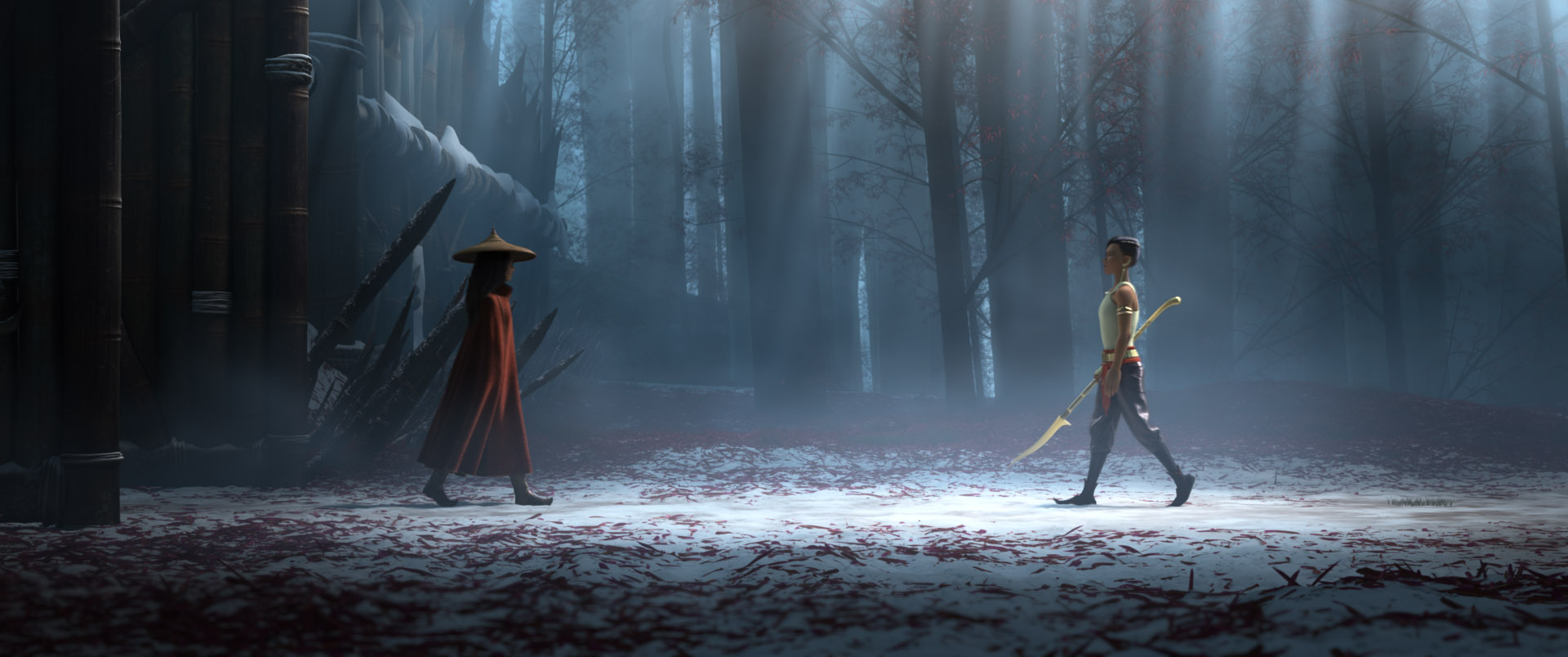★★½
“Violence isn’t the answer. No, wait…”
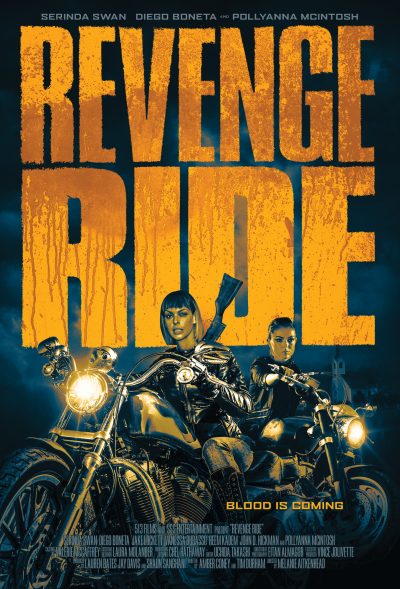 Mary (Dubasso) is drugged and raped by three members of the football team at a college party. Believing neither the college authorities nor the police will do anything, she turns to cousin Maggie (Swan) for help, because her relative is a member of the all-female Dark Moon motorcycle gang (eloquent slogan: “Eat my pussy”). Run by Trygga (McIntosh), they take revenge on the rapists, branding their catchphrase on the perpetrator’s asses, and leaving them in full view on the college campus. The fraternity boys don’t take this kindly, and strike back, causing things to escalate towards an all-out war. Complicating matters are Maggie’s increasing feelings for Brian (Boneta), one of the team, though uninvolved in the rape.
Mary (Dubasso) is drugged and raped by three members of the football team at a college party. Believing neither the college authorities nor the police will do anything, she turns to cousin Maggie (Swan) for help, because her relative is a member of the all-female Dark Moon motorcycle gang (eloquent slogan: “Eat my pussy”). Run by Trygga (McIntosh), they take revenge on the rapists, branding their catchphrase on the perpetrator’s asses, and leaving them in full view on the college campus. The fraternity boys don’t take this kindly, and strike back, causing things to escalate towards an all-out war. Complicating matters are Maggie’s increasing feelings for Brian (Boneta), one of the team, though uninvolved in the rape.
If ever they do a Daughters of Anarchy series, McIntosh needs to be the lead She has the perfect physical and psychological presence for the role, and is perfectly cast here. Seeing her, drenched in blood, whacking someone’s brains out with an iron chain, is sufficient reason for this to exist. Unfortunately, it’s about all this has to offer. The script is full of mis-steps, mostly a result of trying to cram too much into a running time which barely reaches 70 minutes before the credits roll. As a result, the relationship between Maggie and Brian feels unconvincing, and Mary’s induction into the gang is also deeply rushed. What, no time as a prospect? From my deep knowledge of their culture (obtained entirely from having watched every episode of Sons of Anarchy), I know it’s not typically harder to get into a sorority than a biker gang.
That said, the idea that three footballers would be able to hold their own against, and pose a threat to, the entire ranks of Dark Moon membership, doesn’t exactly sell them as the set of bad-ass bitches they’re supposed to be. The action scenes also leave a good amount to be desired, McIntosh’s chain-swinging aside, and the finale feels unnecessarily rushed, as if the makers ran out of money and had to end things without getting to film an acceptable wrap-up. Despite efforts to address their absence, the complete lack of interest by the authorities in the mayhem as it unfolds, stretches credulity as well.
Philosophically, it does seem to change its answer in the middle. Is violence acceptable or not? Initially, it seems gung-ho in favour of vengeance. While Mary eventually rejects this, it seems to be only when it threatens to engulf Brian, so appears to be for personal reasons, rather than any modification of her world-view. It feels as if the makers want the audience to reject the notion… while also using it to fuel an adrenaline rush of righteous justice. Perhaps, again, if the film had taken the time to depict Mary’s attitude adjustment, it could have brought viewers along with her. Instead, it all feels a bit hypocritical. I will, however, continue to watch McIntosh in anything and everything.
Dir: Melanie Aitkenhead
Star: Serinda Swan, Pollyanna McIntosh, Vanessa Dubasso, Diego Boneta





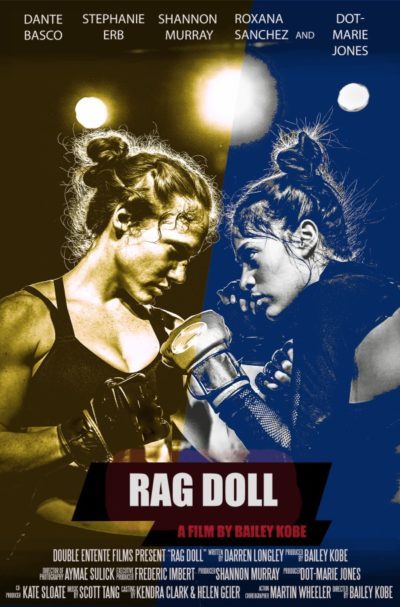
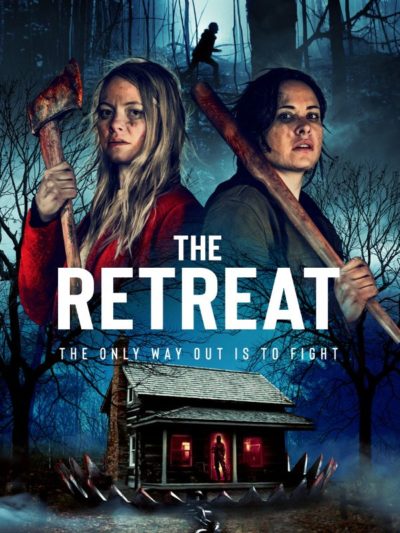 After the unexpected pleasures of
After the unexpected pleasures of 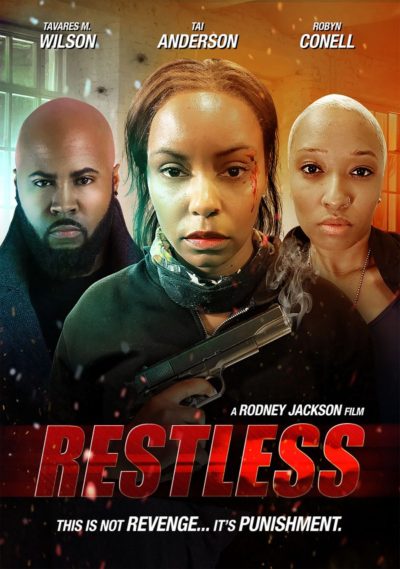

 Poor teenage girl Mako (Ogura) is having a pretty crappy time of it. Her parents are feuding over money troubles, she’s getting bullied at school, and then, her father ends up arrested for fraud. But, just when things are their lowest, she gets a paper-cut. For reasons that are never
Poor teenage girl Mako (Ogura) is having a pretty crappy time of it. Her parents are feuding over money troubles, she’s getting bullied at school, and then, her father ends up arrested for fraud. But, just when things are their lowest, she gets a paper-cut. For reasons that are never 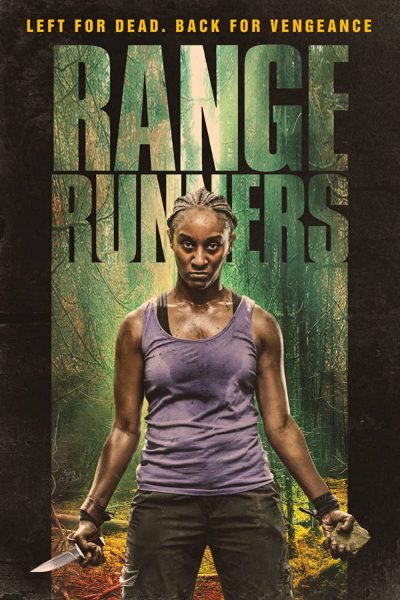 Mel (Cooper) is engaged on a project of running the Appalachian Trail (or a convincing facsimile thereof), with some help from her sister, who meets her at various points to provide support and fresh supplies. Mel is currently on her own, starting an eight-day section of the hike where she’ll be out of contact. However, she bumps into a couple of suspicious characters, deep in the woods: Wayland (Leonard) and his partner, Jared (Woods). Initially, it seems like a creepy, but one-off random meeting. It turns out to be considerably more and subsequent encounters escalate, until Mel is sent plummeting over the edge of a drop-off, badly injuring her leg, but in possession of something very important to Wayland and Jared. Will she be able to escape her pursuers and make it to safety?
Mel (Cooper) is engaged on a project of running the Appalachian Trail (or a convincing facsimile thereof), with some help from her sister, who meets her at various points to provide support and fresh supplies. Mel is currently on her own, starting an eight-day section of the hike where she’ll be out of contact. However, she bumps into a couple of suspicious characters, deep in the woods: Wayland (Leonard) and his partner, Jared (Woods). Initially, it seems like a creepy, but one-off random meeting. It turns out to be considerably more and subsequent encounters escalate, until Mel is sent plummeting over the edge of a drop-off, badly injuring her leg, but in possession of something very important to Wayland and Jared. Will she be able to escape her pursuers and make it to safety? Natalia Nicolaeva in a 19-year-old, living with her parents on a farm in Transnistria, which I imagine most people would be hard-pushed to find on a map. Per Wikipedia, “it is a breakaway de facto state in a narrow strip of land between the river Dniester and the Ukrainian border that is internationally recognized as part of Moldova.” Now you know. She lets her friend, Sonia, convince her into taking up a job offer overseas which – probably inevitably – turns out to be the gateway to them becoming the victims of sex traffickers, imprisoned in a Turkish brothel. Natalia manages to escape, though pays a heavy price, and the man in charge of the gang, Goran Zigic, has not forgotten her either.
Natalia Nicolaeva in a 19-year-old, living with her parents on a farm in Transnistria, which I imagine most people would be hard-pushed to find on a map. Per Wikipedia, “it is a breakaway de facto state in a narrow strip of land between the river Dniester and the Ukrainian border that is internationally recognized as part of Moldova.” Now you know. She lets her friend, Sonia, convince her into taking up a job offer overseas which – probably inevitably – turns out to be the gateway to them becoming the victims of sex traffickers, imprisoned in a Turkish brothel. Natalia manages to escape, though pays a heavy price, and the man in charge of the gang, Goran Zigic, has not forgotten her either. For the first, perhaps, three-quarters, this feels almost more like a Lifetime Original Movie. Then, at the end… Hoo-boy. But let’s not get ahead of ourselves, shall we? It begins with Nina (Orlan), seeking to escape a fraught life in Russia, for her and her young daughter, Dasha (Pimenova). Through an online dating service, she meets Karl Frederick (Bernsen), and they eventually move to America to be with him. While he’s an older gentleman, initially they seem to have struck it lucky, for he’s a rich, retired surgeon, who owns a massive estate in the country. In fact, you could say it seems almost too good to be true…
For the first, perhaps, three-quarters, this feels almost more like a Lifetime Original Movie. Then, at the end… Hoo-boy. But let’s not get ahead of ourselves, shall we? It begins with Nina (Orlan), seeking to escape a fraught life in Russia, for her and her young daughter, Dasha (Pimenova). Through an online dating service, she meets Karl Frederick (Bernsen), and they eventually move to America to be with him. While he’s an older gentleman, initially they seem to have struck it lucky, for he’s a rich, retired surgeon, who owns a massive estate in the country. In fact, you could say it seems almost too good to be true…
